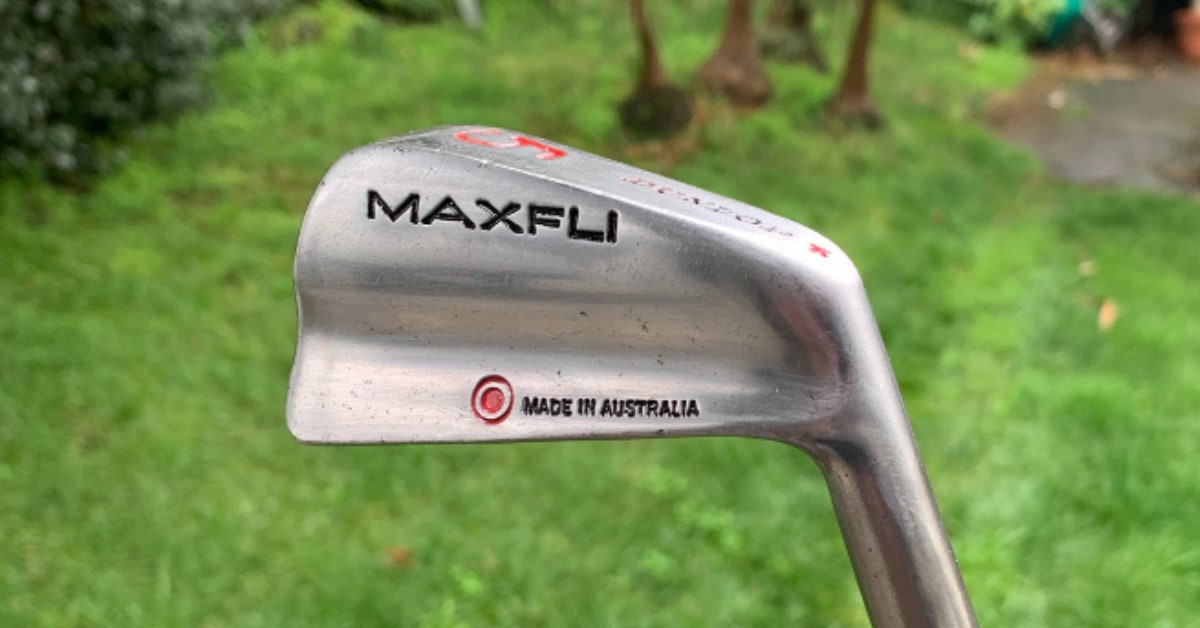Dunlop Tyres was founded in 1888, over 130 years ago. About a decade later, the rubber specialists entered the sports market by launching its first golf ball.
It wasn’t until the 1960s that Dunlop began manufacturing golf clubs, expanding its presence in the lucrative golf equipment market. In this period through to the late 1980s, Dunlop had a strong foothold with some classic iron releases.
In this article, you’ll find a complete list of Dunlop irons by year.
Dunlop Irons By Year
Here is a full list of every Dunlop iron release:
| Image | Dunlop Iron Model | Release Year | Price |
|---|---|---|---|
Dunlop XTI Irons | 2007 | Buy on Global Golf | |
 | Dunlop Invicta Oversize Irons | 2005 | Buy on Global Golf |
Dunlop RG Designs Players Irons | 2004 | Buy on Global Golf | |
Dunlop Pro Series D Driving Irons | 2004 | Buy on Global Golf | |
Dunlop Tad Moore TM02 Irons | 2003 | Buy on Global Golf | |
Dunlop Tad Moore TM01 Irons | 2003 | Buy on Global Golf | |
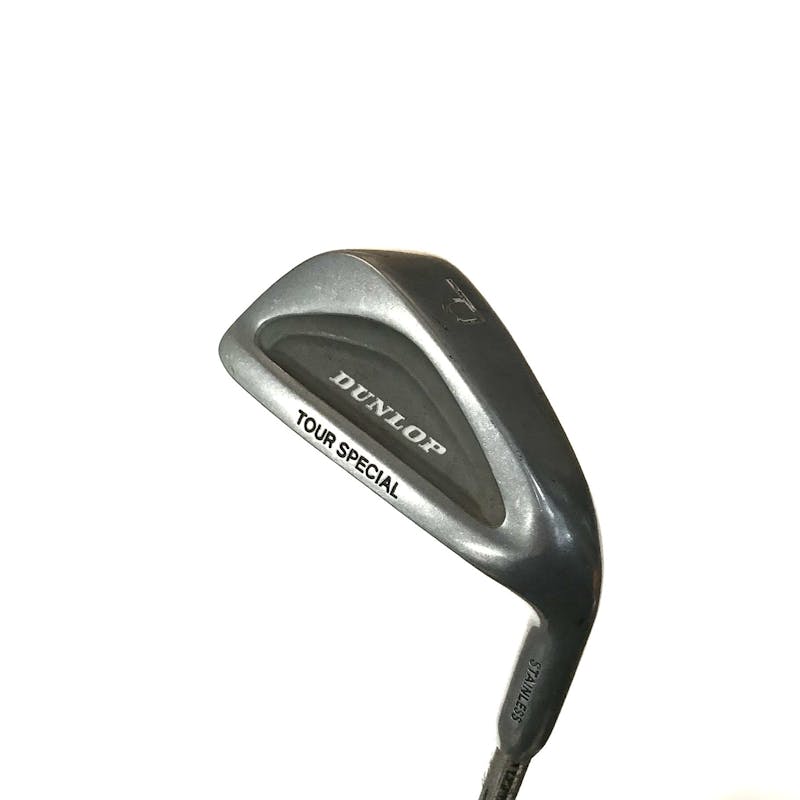 | Dunlop Tour Special Irons | 2002 | Buy on Global Golf |
 | Dunlop Tad Moore Blade Irons | 2001 | Buy on Global Golf |
 | Dunlop RMS Irons | 2000 | Buy on Global Golf |
 | Dunlop Tour Medalist Irons | 1996 | Buy on Global Golf |
 | Dunlop Maxfli Pro Special Irons | 1982 | Buy on Global Golf |
 | Dunlop Maxfli "Script" Australian Blade Irons | 1981 | Buy on Global Golf |
 | Dunlop Maxfli Power Flange #5 Irons | 1980 | Buy on Global Golf |
 | Dunlop Maxfli Australian Blade Irons | 1979 | Buy on Global Golf |
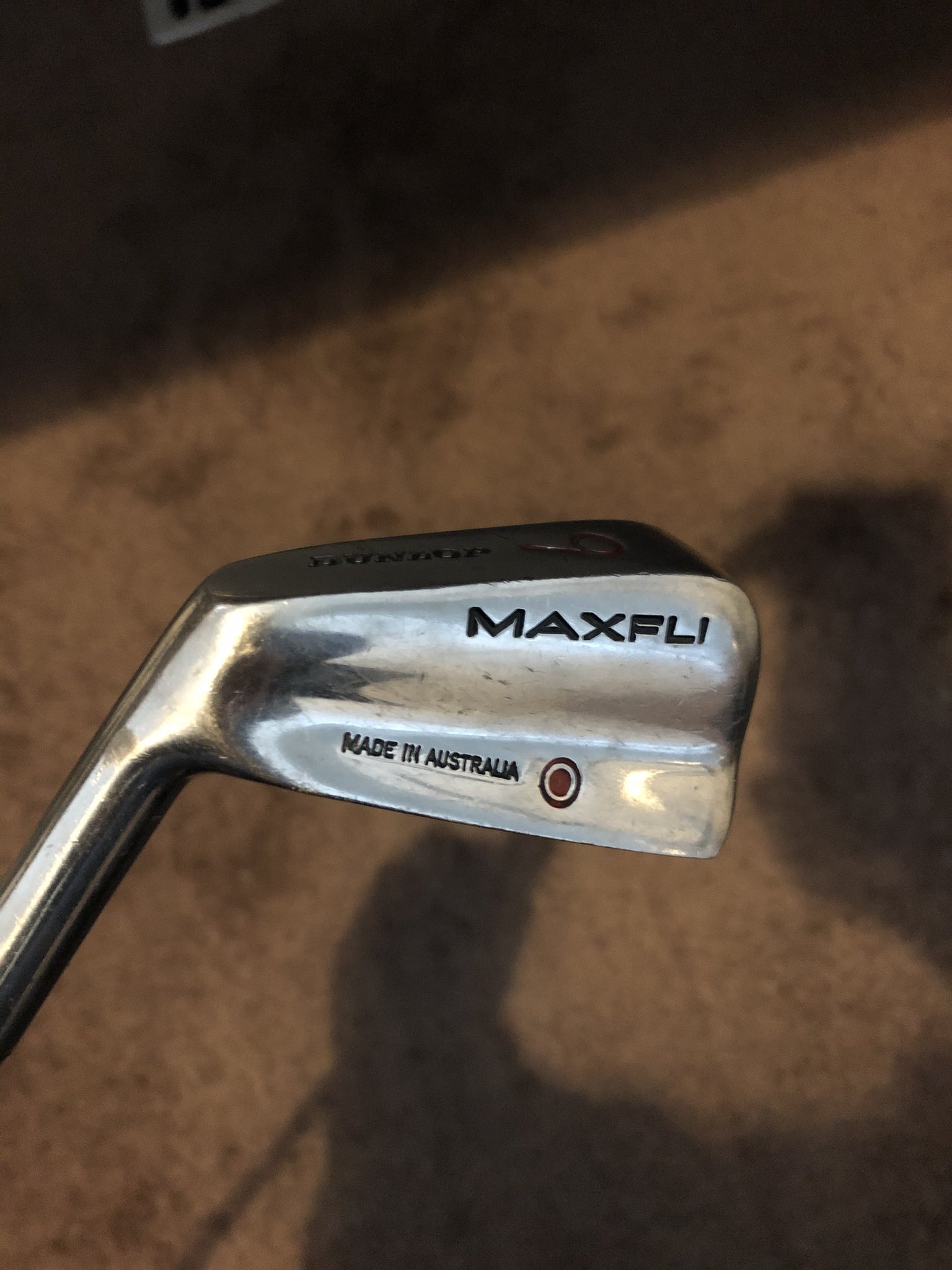 | Dunlop Maxfli "Made in Australia" Irons | 1976 | Buy on Global Golf |
 | Dunlop Maxfli Roberto de Vincenzo Irons | 1970 | Buy on Global Golf |
 | Dunlop Maxfli Irons | 1967 | Buy on Global Golf |
Dunlop Irons: 1960-1979
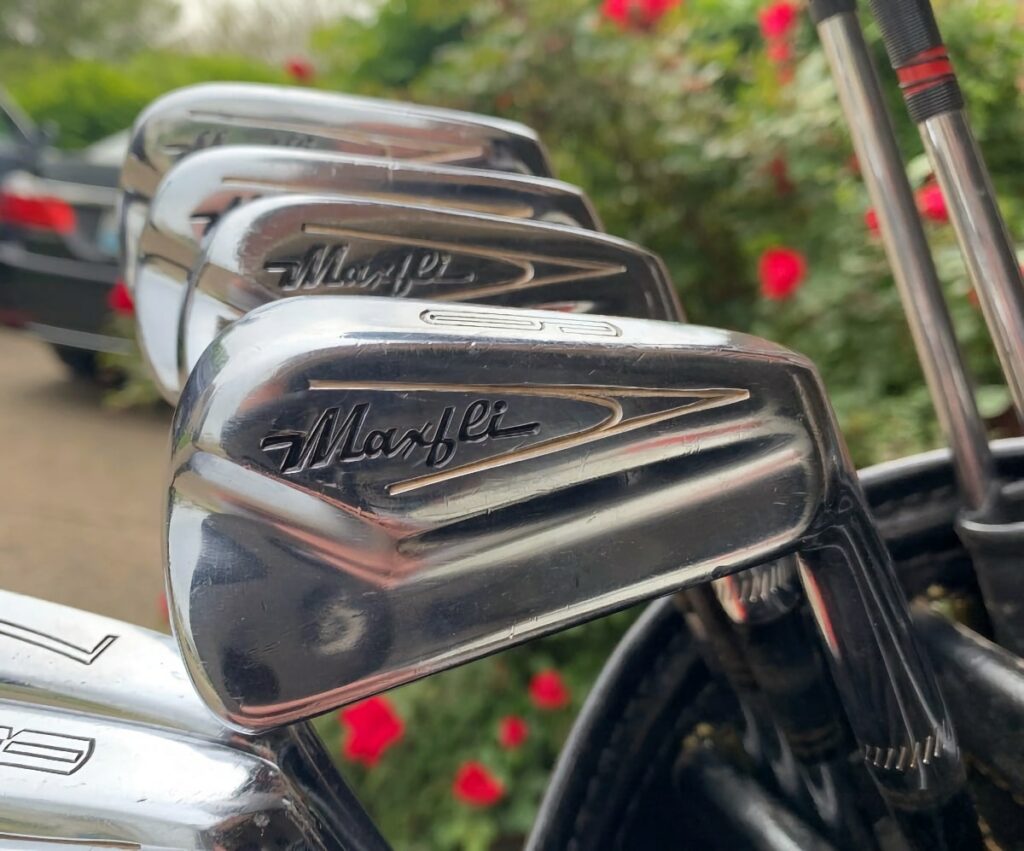
Dunlop released its first notable set of irons around 1967: the Maxfli Blades. These irons epitomized the clean, traditional blade designs popular at the time.
By the 1970s, the Maxfli range became increasingly popular. Dunlop capitalized on this growth by introducing new iterations with improvements, like the Maxfli International and the Maxfli Roberto de Vincenzo irons.
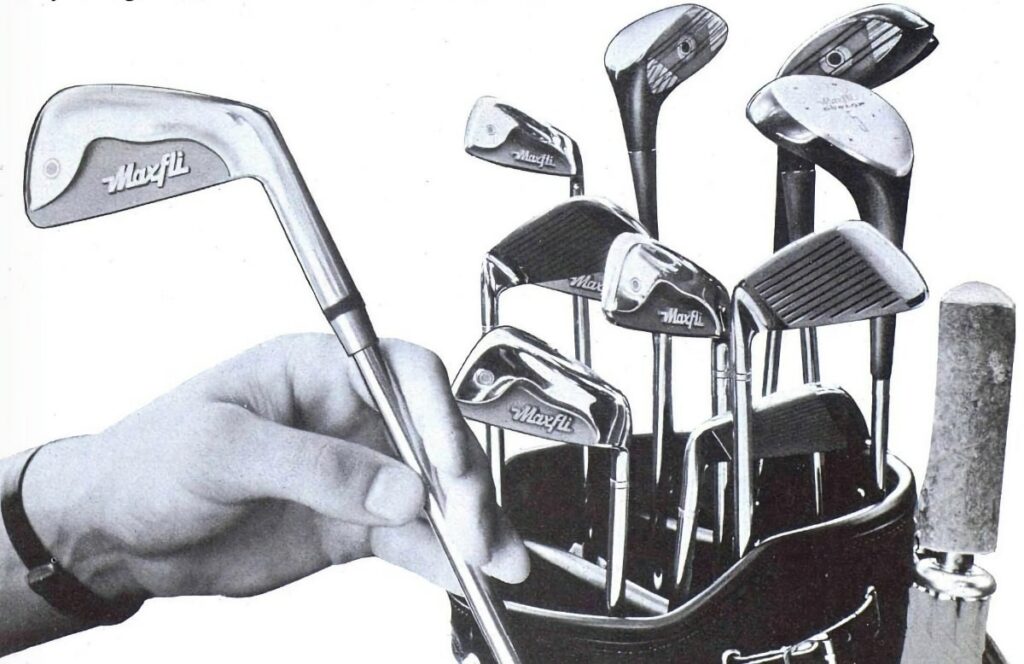
Iconic golfers including Tony Jacklin, Roberto de Vincenzo, and Seve Ballesteros trusted Dunlop irons during the company’s early years.
By the mid-1970s, Dunlop further updated the Maxfli lineup with its “Made in Australia” version. This model was hand-forged in Australia and featured an ultra-thin topline with minimal offset. In short, you had to be good to hit them!
Case in point, Hale Irwin won the 1979 U.S. Open with a set of Dunlop Maxfli Australian Blade Irons. Check out The Vintage Golfer‘s review below:
Dunlop Irons: 1980-1999
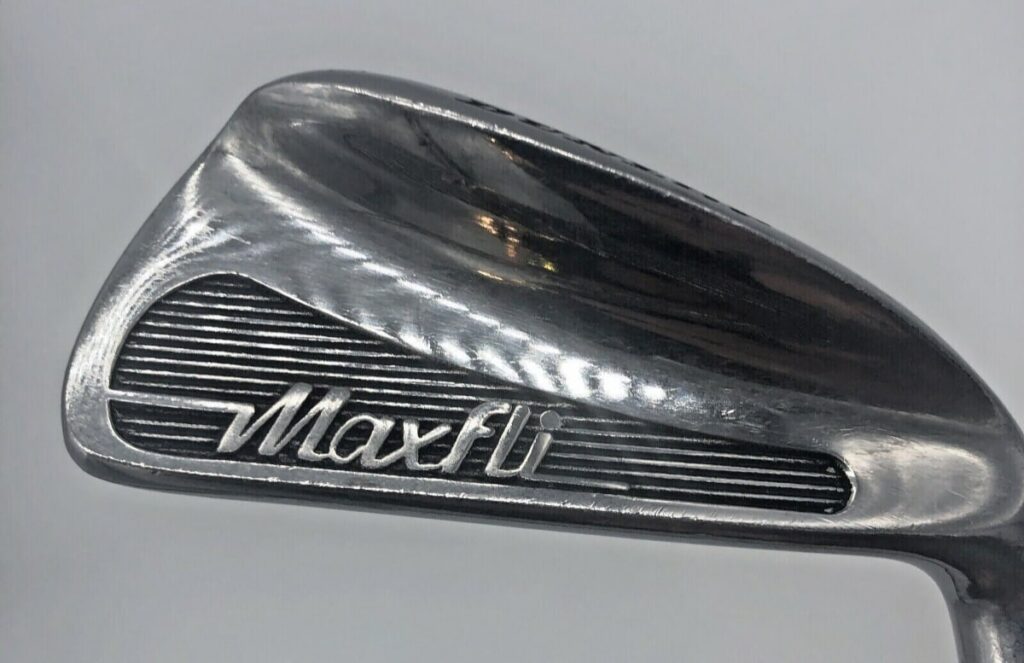
The 1980s marked a period of innovation for Dunlop. Iron releases came quickly, meeting demands for blades and cavity backs — both forged and cast.
Notable releases included the Power Flange #5 driving iron in 1980 and the Pro Special cavity backs in 1982. Dunlop also signed big-name pros like Seve Ballesteros, boosting the brand’s reputation around the world.
The 90s were quieter for Dunlop, as they faced stiff competition from the likes of Ping and Callaway, who were experiencing rapid growth.
In 1996, the Tour Medalist forged cavity backs were introduced. At this time, the Dunlop brand began its transition from premium forged blades to affordable, game improvement clubs. This was a strategy to hit a larger target audience.
Dunlop Irons: 2000-Present
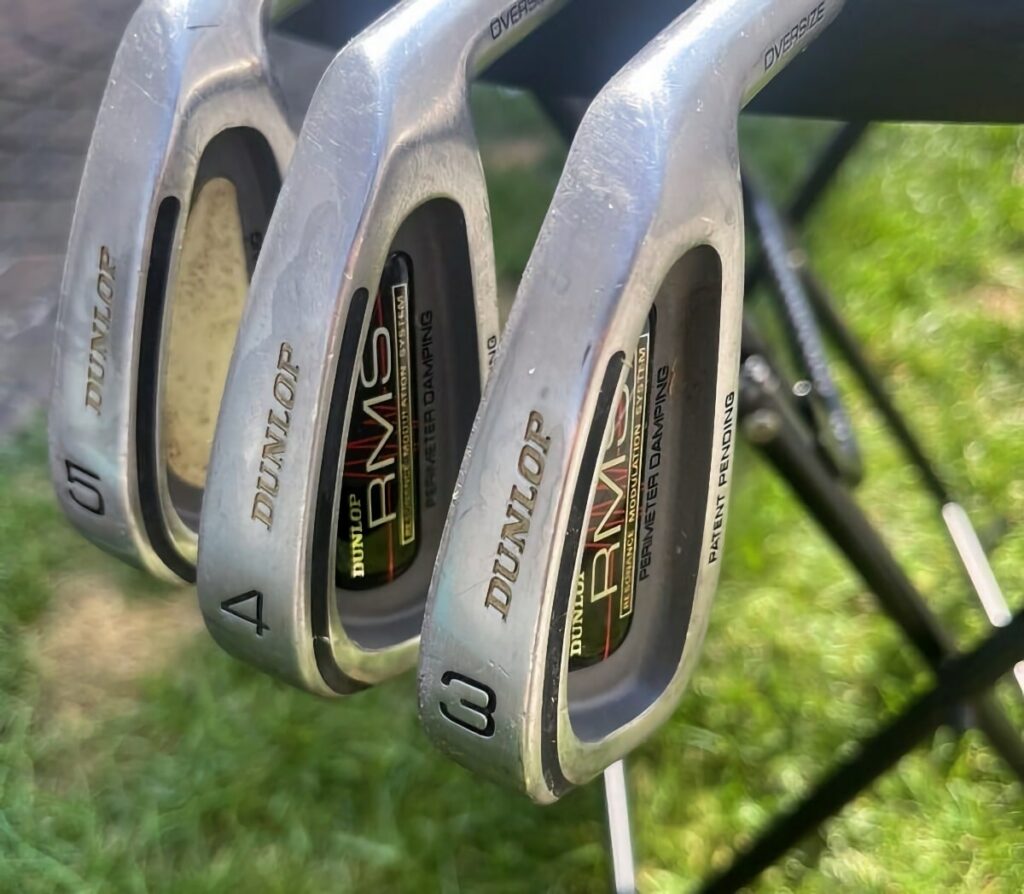
The 2000s brought a refreshed commitment to innovation from Dunlop.
Releases early in the decade like the 2001 Tad Moore Blade irons proved Dunlop could still make serious equipment for accomplished golfers.
Tad spoke about these irons on the GolfWRX forum:
These were designed for Dunlop in 2001 and were produced until 2003. I used a rare cast alloy material (Carpenter Steel) that feels exactly like forged.
Tad Moore via GolfWRX
As the decade continued, Dunlop also rolled out cavity backs targeting everyone from seniors to powerful ball strikers.
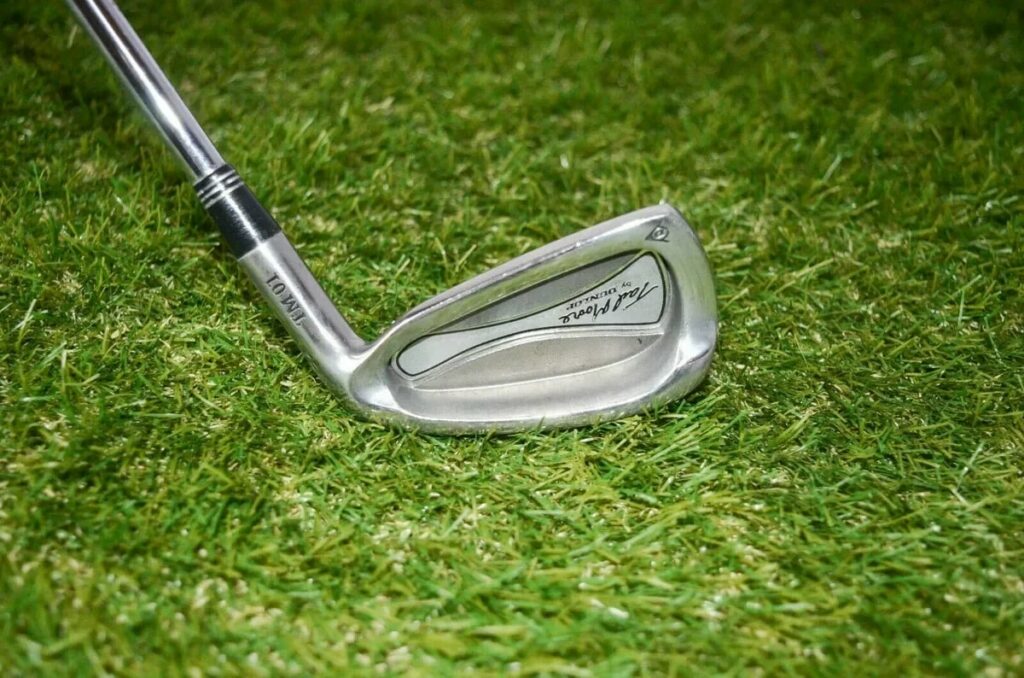
Dunlop enlisted Tad Moore‘s design expertise once again in 2003, when it released the TM01 and TM02 irons. Both models were cavity back designs — the TM01 was forged while the cheaper TM02 irons were cast from carpenter steel.
Since the early 2000s, Dunlop turned its focus to entry-level clubs and package sets targeted at the beginner golfer. Sadly, the iconic blade designs of the 70s and 80s are now a thing of the past.
Today, Dunlop doesn’t produce clubs under its brand name. Instead, the “Dunlop Sports Americas” acts as a holding company for Srixon, Cleveland, and XXIO.

